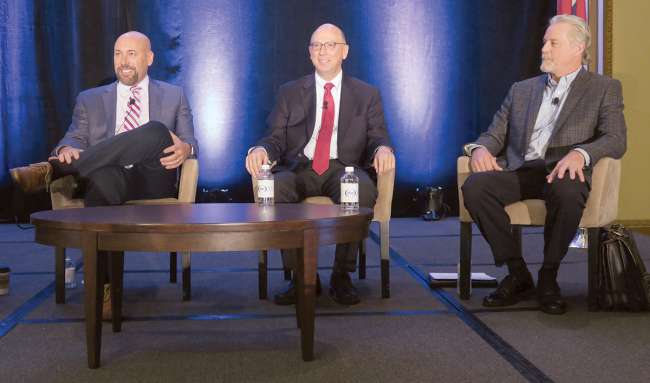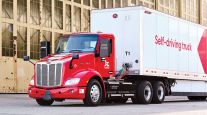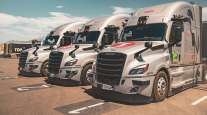Senior Reporter
Autonomous Trucks a Plus for Safety, Security, Recruitment, Execs Say

MEMPHIS, Tenn. — Autonomous heavy trucks not only show promise to reduce crashes, but they also offer a potential to improve cargo security and driver recruitment, according to executives speaking here at a recent national safety and security conference sponsored by American Trucking Associations.
Michael Cammisa, ATA’s vice president of safety policy and a panelist at a conference session on the impact of autonomous trucks, said that because automated technologies offer drivers 360-degree awareness, they will likely play a significant role in helping reduce heavy truck crashes.
“With the automated technology that we now have, computing power and sensors to do things that we couldn’t do in the past, it’s the way to go,” Cammisa said. “We’ve pushed the limits on some of the other things in terms of crash worthiness and traditional technology. So now with automation we can try to adjust for some of the driver behavior, not just the driver of the vehicle — the truck in our case — but also the other driver as well.”
The technologies of today are the building blocks for autonomous vehicles, Cammisa said.
“These building blocks are handling some of the acceleration, some of the braking and some of the steering of the vehicle,” Cammisa said. “The key with automation is that the software is going to be able to integrate those control functions and actually control the vehicle to take over for the human.”
However, it’s unlikely that there will be a rush to deploy autonomous trucks when they first become available, perhaps in 10 or 15 years, Cammisa said.
“I think that a lot of people are visualizing that all trucks are automated and there’s no drivers,” he said. “That’s not really where we’re going. There’s just so much variance in roads and business operations that an automated truck is going to have a role. But driving trucks is still going to be necessary.”
Driver-assisted trucks may be compatible with driving on interstates, but after they exit an interstate, the driver might have to take control to its final destination and make a delivery.
Now with automation we can try to adjust for some of the driver behavior, not just the driver of the vehicle — the truck in our case — but also the other driver as well.
Michael Cammisa, ATA vice president of safety policy
Panelist Jeffrey Tucker, CEO of Tucker Co. Worldwide, said he believes that autonomous trucks should not be made available for at least a decade, but will likely be out sooner.
“Unfortunately, there’s so much money and there’s so much power involved, that we may get them sooner than a decade,” Tucker said. “But as we automate, I get pretty excited about the possibilities. I think we’re really, really close to technology enhancing all of our operations.”
He said as technology grows, brokers and shippers are going see improvement in the security of their high-value freight.
“As technology grows we’re going to have a lot of great tools to help us evaluate loss,” Tucker said. “From a shipper perspective, if we can get good data and the carrier can take the shipment 200 miles without stopping, that’s a huge risk avoided.”
Tucker was referring to the 200-mile rule that prohibits carriers from transporting cargo unless the truck has enough fuel and the driver has enough time on his hours of service to travel 200 miles without stopping.
Session speaker Kent Ferguson, director of transportation solutions for HireRight, said autonomous trucks will likely be a plus for trucking human resources administrators.
The sophisticated technologies will reduce accidents, trucks will be more profitable with better equipment utilization, fuel economy will improve, and so will driver pay, Ferguson said.
If regulators and legislators increase sleeper berth time while a truck is running down the road on autopilot it will improve the lifestyle of drivers, which will in turn assist in recruitment.
Autonomous trucks will likely appeal to a more diverse candidate demographic, Ferguson said, specifically younger generation groups such as millennials.






